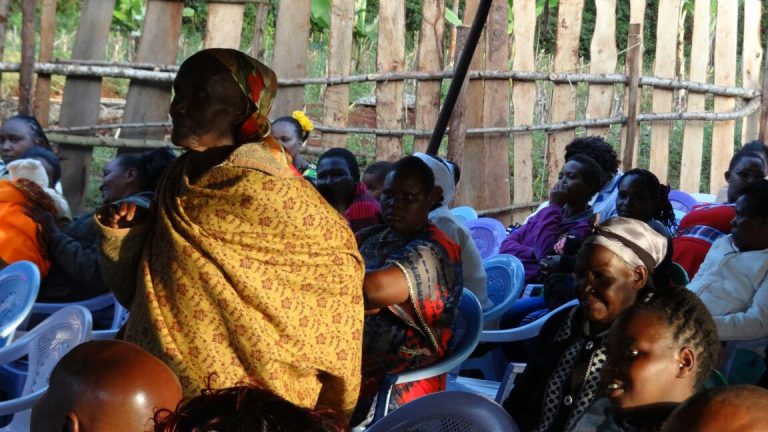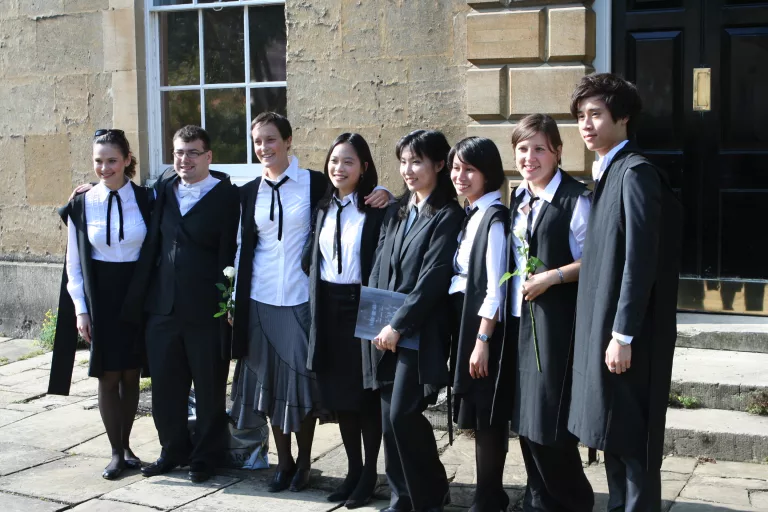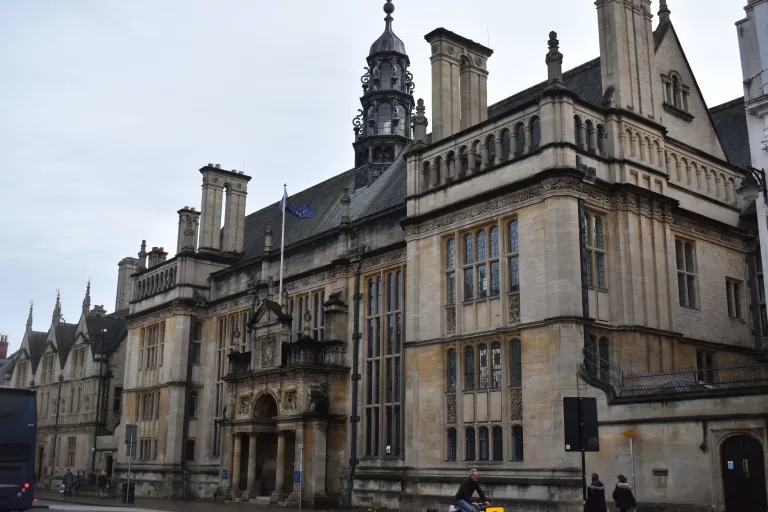I am not going to lie. I myself was pretty much oblivious to Paraguay’s existence before being introduced to the documentary, 108: Cuchillo de Palo. Set during Stroessner’s dictatorship, it goes in search of the truth surrounding the director’s uncle, a gay ballet dancer who was found dead in his house one morning. It’s one of those documentaries that keeps you thinking for days.
Spurred on by curiosity to find out what being gay in Paraguay is like today, I did what everyone does when they cannot stop thinking about something: I googled it. A few amateur searches composed of a jumble of disconnected words regarding the LGBT community in Paraguay allowed me to delve into the topic. At some point, I stumbled upon an article headline from the country’s main news outlet, ABC Paraguay, reading: ‘First openly gay candidate speaks out against vote-buying’.
While the prevalence of ‘vote-buying’ is obviously condemnable, what caught my attention was the first part: the ‘first openly gay politician’. Having just read horror stories about the gay experience in South America’s most conservative country, I felt that I had to hear from him. A good dose of healthy stalking later, I found his Instagram profile, sent him a message, scheduled a Zoom call, and here we are. What follows is an interview with Federico Enciso, a 28-year-old master student in social work and the former candidate for the opposition party, PLRA (Authentic Radical Liberal Party), who just so happens to be gay:
Why did you decide to become a politician?
“Ever since I was a boy, politics has always interested me, despite the fact that my family was pretty much apathetic to the subject. I started investigating and became involved in my school’s student council. Though we initially only debated issues which affected education, we started contemplating the possibility of getting involved on other fronts, such as party politics. We all got involved because we wanted to – and still want to – discuss things which are simply not talked about in Paraguay. One of the things which we wanted to talk about was young people that political parties ignore.”
Is there a difference between Paraguayan young people’s attitude to politics and your parents’ generation?
“Paraguay’s main problem is that it went through one of longest dictatorships in Latin America, and the main ‘achievement’ of this dictatorship was to instil fear, indifference, and apathy towards politics in the population. With regard to LGBT issues, I guess things have got better, but they are far from perfect. Above anything else, people are afraid. Even though there is no law against homosexuality in Paraguay like there is in Russia, for example, the fear of social rejection is still stronger than ever. For instance, if you are gay, it’s harder to get a job and there are many cases of abuse, not only mental but also physical. And if you are transexual, everything is a thousand times worse.”
Why has so little changed since Stroessner’s dictatorship?
“Paraguay’s history is not like that of other South American countries. In Argentina, Chile, Brazil and Uruguay, dictatorships fell, giving way to – more or less – stable democracies with alternating governments. Here, the same party that supported the dictatorship is still in power and this makes change a lot harder. If you actually look at election results, you’ll see that most people don’t vote for the Colorado Party, but there’s a First-Past-the-Post system, which means that the opposition vote is split between three or four candidates. If the political system was different, a lot of change could have already been made in several areas.”
In which areas besides LGBT rights do you feel that Paraguay lags behind?
“One of the most basic things that I think is lacking in Paraguay is a true democratic tradition. If you look at some surveys, you’ll see that most Paraguayans would support an authoritarian regime. Even if we have been a democracy for a long time now, there is still an absence of democratic values. The other big issue, for me, is inequality. In Paraguay, there is no middle class; you are either crazy rich or you live in poverty. This inequality affects all areas of life: education, healthcare, and employment. Most jobs are precarious and pay peanuts. There is no real industry apart from agriculture in Paraguay, and, as a consequence, people cannot find good jobs. All of this is aggravated by the fact that Paraguay has one of the worst education systems in the world.”
In the last few years, several important Paraguayan politicians have made homophobic remarks, most notably the country’s former president, Horacio Cartes, who said he would ‘shoot himself in the balls’ if he had a gay son. What do you make of these comments?
“I think you have to split this topic in two. The first problem that we see is impunity. Politicians can say whatever comes to mind because they know that there are never any consequences. In fact, there is no law against homophobia in Paraguay. However, there is also another issue. In the past, people used to blame everything on communists in Paraguay. Anyone who criticised the government was a communist. If someone went out to protest against poverty, he was immediately labelled a communist. Not much has changed. Now, in Paraguay, the government blames everything on the UN’s ‘Vision 2030’. There’s a whole band of politicians who scare people saying that the LGBT community wants to indoctrinate children. All of this is merely a tactic to distract the population from the country’s real problems. Besides being homophobic, these politicians are also using this discourse with an aim in mind. For instance, Cartes is accused of being involved in narcoterrorism by the US government. Instead of taking these accusations seriously, all of Cartes’ political entourage has blamed them on the fact that the US ambassador to Paraguay is gay. He attributes the claims made against him to the dissonance between his conservative political views (as a defender of God, family and the fatherland) and the ambassador’s.”
How do you feel being an openly gay politician in such a conservative country?
“What I have noticed, since I am a public figure, is the power of social media. Because of what I do, I receive a non-negligible amount of hostility on my social platforms, but rarely in person. I know that it’s not just because I’m gay. It’s the whole package, you see? I’m gay, and I criticise the government. I don’t really let it affect me; often, on social media, there are profiles that are quite visibly fake or bots. What makes me happy is that I have received lots of messages of support, from lots of people who tell me that they would not have the guts to do what I do and are happy to see someone defending the cause.”
How was your coming out?
“My story does not reflect that of the majority. I was also supported by my family and friends, something which normally does not happen here. In Paraguay, if you come out, generally, you have to move out too. Hostility to gay people exists pretty much everywhere; maybe there is not so much discrimination in Asunción [the capital city], but that is not to say it does not exist.”
You now live in Argentina. Why did you decide to leave Paraguay?
“First and foremost, I’m here for academic reasons; I came to study here. In Argentina, public universities are good and accessible, something which cannot be said of universities in Paraguay. While education is a right set out in the Paraguayan Constitution, nobody respects the legislation in practice. The other reason why I am here is because I’m tired. Let me explain. Many of the people I knew in Paraguay who were involved in the same struggle went through a process of thinking things were going to change quickly to understanding that the problem was much deeper-rooted. Paraguay has been a democracy for over thirty years, but not much has changed over that time period. Partially, it was this lack of change which pushed me to leave. I was tired of seeing gay friends suffer for being who they were. It’s all very tiring. To be honest, I think I am going to stay in Argentina.”
Is there a difference in attitudes between Argentina and Paraguay?
“Just by crossing the river which separates the two countries, everything changes. It has been a while now that there is legislation which protects the rights of the LGBT community. In my university course, I have a fellow student who is trans in my class, and everybody calls her the name that she has chosen. I just can’t see this happening in Paraguay. All of this is a relief for me. Obviously, there are still conservative politicians, and, in fact, the president of Argentina is a conservative. Despite this, in general, things are much better, not just among young people but also among older generations who accept diversity.”
Do you not want to go back to Paraguay to try to change the situation?
“I could, if I wanted to, but I would have to give too much of myself. I would have to put in so much energy and put my mental health on the line in the process. I’ll give you an example. I remember that about two years ago I had a boyfriend, and we were lying down hugging each other on a beach when a man who worked for the local council came over to tell us that we couldn’t do what we were doing. At that moment, I faced two options: either to complain and make a scene, as I usually do, or to keep quiet and leave. The latter is what people usually do, because putting up a fight is tiring. It’s so tiring having to explain the obvious. I know this might seem like a bit of a petty example, but it’s a constant. All the little things that happen on a daily basis add up and affect your mental health. Paraguay is among the countries with the highest rate of young people with depression, anxiety…. It’s because of all of this that, at least for now, I am staying put in Argentina. I love my family and friends, but the political situation in Paraguay is just too complicated.”
All this time that I had been speaking with Federico Enciso, I could not help remembering what Augusto Roa Bastos, by far the country’s most famous novelist, had said during an interview in exile in 1986: ‘Today, Paraguay is a republic of besieged citizens. Half of the population has been corrupted, and the other half domesticated.’ Almost forty years later, the phrase still fits. Sure, Paraguay is no longer a dictatorship, there are no longer arbitrary arrests, and people do not disappear from one moment to the next without any explanation, but the country still lives in a state of fear and fatigue. It would be much easier if Paraguay could start a blank page; however, in the real world, this is impractical. Paraguay must not fake dementia about its dark past, but recognise the damage inflicted by the Stroessner’s dictatorship. Individuals, like Federico Enciso, who refuse to be domesticated or corrupted, will be the protagonists in the next chapter of Paraguay’s history.










